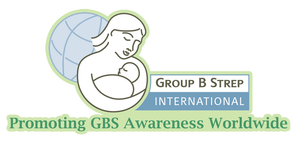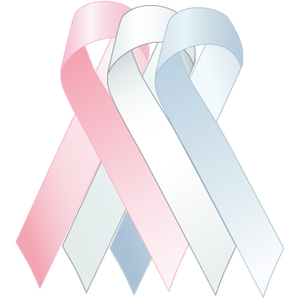I had my son 4 weeks early. I was tested for GBS several days before I had him, but was not aware of my status when I went into labor. I was given IV antibiotics during delivery. When we found out he had GBS I called my OB's office for the GBS screen results and was told that I had tested positive.
On the afternoon of January 7, 2012 (21 days old), he seemed fussy to me and I could not get him to nurse. I put him down for a nap around 4pm and had to wake him up around 7pm. At that point he just seemed to look "off" to me. He seemed lethargic and I was not able to get him to nurse. I took his temperature and it was 100.4. We took him to Arkansas Children's Hospital. In the time it took us to load him in the car and get into triage at the hospital he deteriorated quickly. He had many of the warning signs (poor feeding, high pitched cry, lethargic, fever, pale, slow to respond to stimuli, stuporous, rapid respiratory rate). The ER staff was exceptional and jumped into quick action once we were back in a room. They established IV access and gave him 4 fluid boluses. IV antibiotics and an antiviral were started and a lumbar puncture was ordered but postponed because he was not stable enough to complete it. Blood cultures and a urine culture were done. We were admitted to the PICU and the lumbar puncture was performed around 2 in the morning. Results came back early that morning indicating GBS bacterial meningitis. Blood cultures were also positive for GBS.
The first few days were touch and go and he did not stabilize until around the 4th day in the PICU. Those first several days were exhausting and emotional. They attempted to place a central line at the bedside in the early morning hours the day we were admitted but were unsuccessful. A repeat lumbar puncture a few days into treatment indicated higher CSF WBC counts and antibiotics were changed. A CT done for suspicion of an abscess due to neuro and vital sign changes revealed an area of hypodensity in his right parietal and occipital lobes. A MRI indicated ischemic changes in several areas of the brain and neurology was consulted to discuss prognosis with us. A PICC line and feeding tube were placed. He received 2 units of platelets and vitamin K to address coagulation issues. His vital signs seemed to yo-yo for days. He slowly started to respond to treatment. We were transferred out of PICU and to the floor after 6 days. After much begging and pleading, they let him come home with us after 10 days in the hospital. He was ordered a 21 day course of IV ampicillin and I was able to administer that to him at home. He finished IV antibiotic therapy on February 1, 2012 and had his PICC removed.
We had to move shortly after and got set up with early intervention and a neurologist in our new location. In June of 2012 we had a repeat MRI per the neurologists recommendation that came back NORMAL! I think the neurologist was as surprised as we were given the picture that was painted with the MRI done in Arkansas. As others have mentioned, a baby's brain has an amazing ability to heal, rewire and compensate. We stuck with early intervention until his first birthday and were cleared at that point. The neurologist cleared us following the normal repeat MRI. He is now a little over 2 and just a wonderful, happy, healthy little boy.
I know so many others do not have a happy ending following their experience with GBS and it breaks my heart. We are so blessed and so appreciative of every day we have with our little boy, knowing that the outcome could have been so different for us.
— Camille Wilson, USA
On the afternoon of January 7, 2012 (21 days old), he seemed fussy to me and I could not get him to nurse. I put him down for a nap around 4pm and had to wake him up around 7pm. At that point he just seemed to look "off" to me. He seemed lethargic and I was not able to get him to nurse. I took his temperature and it was 100.4. We took him to Arkansas Children's Hospital. In the time it took us to load him in the car and get into triage at the hospital he deteriorated quickly. He had many of the warning signs (poor feeding, high pitched cry, lethargic, fever, pale, slow to respond to stimuli, stuporous, rapid respiratory rate). The ER staff was exceptional and jumped into quick action once we were back in a room. They established IV access and gave him 4 fluid boluses. IV antibiotics and an antiviral were started and a lumbar puncture was ordered but postponed because he was not stable enough to complete it. Blood cultures and a urine culture were done. We were admitted to the PICU and the lumbar puncture was performed around 2 in the morning. Results came back early that morning indicating GBS bacterial meningitis. Blood cultures were also positive for GBS.
The first few days were touch and go and he did not stabilize until around the 4th day in the PICU. Those first several days were exhausting and emotional. They attempted to place a central line at the bedside in the early morning hours the day we were admitted but were unsuccessful. A repeat lumbar puncture a few days into treatment indicated higher CSF WBC counts and antibiotics were changed. A CT done for suspicion of an abscess due to neuro and vital sign changes revealed an area of hypodensity in his right parietal and occipital lobes. A MRI indicated ischemic changes in several areas of the brain and neurology was consulted to discuss prognosis with us. A PICC line and feeding tube were placed. He received 2 units of platelets and vitamin K to address coagulation issues. His vital signs seemed to yo-yo for days. He slowly started to respond to treatment. We were transferred out of PICU and to the floor after 6 days. After much begging and pleading, they let him come home with us after 10 days in the hospital. He was ordered a 21 day course of IV ampicillin and I was able to administer that to him at home. He finished IV antibiotic therapy on February 1, 2012 and had his PICC removed.
We had to move shortly after and got set up with early intervention and a neurologist in our new location. In June of 2012 we had a repeat MRI per the neurologists recommendation that came back NORMAL! I think the neurologist was as surprised as we were given the picture that was painted with the MRI done in Arkansas. As others have mentioned, a baby's brain has an amazing ability to heal, rewire and compensate. We stuck with early intervention until his first birthday and were cleared at that point. The neurologist cleared us following the normal repeat MRI. He is now a little over 2 and just a wonderful, happy, healthy little boy.
I know so many others do not have a happy ending following their experience with GBS and it breaks my heart. We are so blessed and so appreciative of every day we have with our little boy, knowing that the outcome could have been so different for us.
— Camille Wilson, USA
To learn more about Perinatal & GBS Misconceptions, click HERE.
To learn more about the Signs & Symptoms of Preterm Labor, click HERE.
To learn more about the Signs & Symptoms of GBS Infection, click HERE.
To learn more about Why Membranes Should NOT Be Stripped, click HERE.
To learn more about How to Help Protect Your Baby from Group B Strep (GBS), click HERE.
To learn more about the Signs & Symptoms of Preterm Labor, click HERE.
To learn more about the Signs & Symptoms of GBS Infection, click HERE.
To learn more about Why Membranes Should NOT Be Stripped, click HERE.
To learn more about How to Help Protect Your Baby from Group B Strep (GBS), click HERE.

